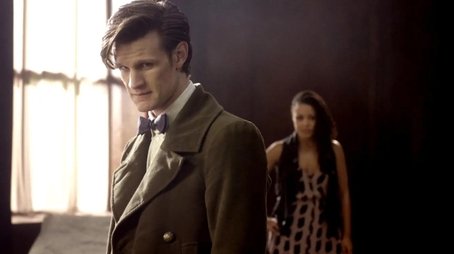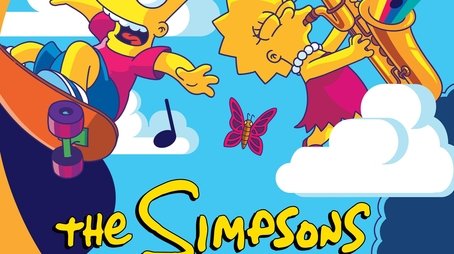
Ask Your Own Question
What is the plot?
The episode begins with the TARDIS materializing in 1938 Berlin, where the Doctor, Amy, and Rory are on a mission to confront a young woman named Mels. Mels is revealed to be a childhood friend of Amy and Rory, and she has grown up to be a rebellious figure. The trio is soon caught in a chaotic scene as Mels, who has been influenced by the Doctor's adventures, pulls out a gun and shoots the Doctor. The bullet strikes him in the chest, and he collapses, leading to a frantic situation where Amy and Rory are desperate to save him.
As the Doctor lies dying, Mels reveals that she is actually River Song, the Doctor's future wife. This revelation shocks Amy and Rory, who are confused about River's identity and her connection to their past. River explains that she has been trying to kill the Doctor for a long time, but her motivations are tied to her own complex history with him. In a moment of desperation, River uses a device to regenerate the Doctor, which causes him to undergo a transformation. The regeneration process is visually intense, with energy swirling around him, and he emerges with a new appearance.
After the regeneration, the Doctor is disoriented but quickly regains his composure. He confronts River about her actions and the implications of her trying to kill him. River, feeling guilty and conflicted, reveals that she has been trying to understand her own identity and the nature of her relationship with the Doctor. The emotional weight of their connection is palpable, as both characters grapple with their intertwined fates.
The scene shifts to the TARDIS, where the Doctor, Amy, Rory, and River are now aboard. They are pursued by a group of robotic assassins known as the Teselecta, who are intent on capturing River. The Doctor devises a plan to confront the Teselecta, using his knowledge of time travel to manipulate events. He instructs Amy and Rory to help him create a diversion while he confronts the Teselecta directly.
In a tense confrontation, the Doctor faces the Teselecta's agents, who reveal their true purpose: they are a time-traveling justice system that punishes those who have committed crimes. The Doctor learns that they are after River because of her past actions, and he must navigate the moral complexities of her history. The tension escalates as the Doctor tries to reason with the Teselecta, but they are unyielding in their mission.
As the confrontation unfolds, River's past is further explored, revealing her connection to the Doctor and the events that led to her becoming a criminal. The emotional stakes rise as River expresses her desire to be free from her past and to forge a new path with the Doctor. The Doctor, torn between his feelings for River and the consequences of her actions, must make a difficult decision about how to proceed.
In a climactic moment, the Doctor uses his cleverness to outsmart the Teselecta, leading to a resolution where River is given a chance to redeem herself. The Doctor's compassion shines through as he offers River a path to forgiveness, emphasizing the importance of their bond. The scene is charged with emotion, as both characters confront their feelings and the implications of their choices.
The episode concludes with the Doctor, Amy, Rory, and River standing together, united in their shared experiences and the challenges they have faced. The emotional weight of their journey is palpable, as they reflect on their past and look toward the future. The Doctor's resolve to protect those he loves is evident, setting the stage for their continued adventures together.
What is the ending?
At the end of "Let's Kill Hitler," the Doctor and his companions confront the consequences of their actions. River Song reveals her true identity and her connection to the Doctor. The episode concludes with the Doctor saving River from her fate, and the TARDIS crew grapples with the complexities of their relationships and the impact of their choices.
As the episode nears its conclusion, the scene shifts to the TARDIS, where the Doctor, Amy, Rory, and River Song are gathered. The atmosphere is tense, filled with the weight of recent events. River, having just been saved from her own death by the Doctor, stands before him, her emotions a mix of gratitude and confusion. She is aware of the significance of their connection, yet the Doctor remains somewhat distant, grappling with the implications of their intertwined fates.
The Doctor, still reeling from the revelation of River's identity as his future wife, struggles to process the information. He is both fascinated and troubled by the knowledge that she has killed him in her timeline, a fact that looms over their relationship. River, in turn, is eager to understand the Doctor's feelings, but he is hesitant to fully embrace the emotional complexity of their bond. This moment is charged with unspoken words, as both characters navigate their feelings for one another amidst the chaos of their adventures.
As they leave the TARDIS, the group finds themselves in a serene setting, contrasting sharply with the earlier chaos. The Doctor takes a moment to reflect on the events that have transpired, acknowledging the weight of their choices. He expresses a desire to move forward, to embrace the future rather than dwell on the past. This moment of introspection highlights the Doctor's character as someone who values life and the potential for change, even in the face of difficult truths.
Meanwhile, Amy and Rory stand together, their relationship tested by the events they have witnessed. They share a quiet moment, reaffirming their commitment to one another. Their bond has been strengthened through adversity, and they find solace in each other's presence. This scene emphasizes the theme of love and partnership, showcasing how their experiences have deepened their connection.
As the episode draws to a close, the Doctor, Amy, Rory, and River prepare to embark on their next adventure. The TARDIS materializes, and they step inside, ready to face whatever challenges lie ahead. The Doctor's resolve is evident as he takes the helm, determined to protect his friends and continue their journey through time and space.
In the final moments, River shares a poignant farewell with the Doctor, hinting at the complexities of their future together. She leaves him with a sense of hope, reminding him that their paths will cross again. The episode concludes with the TARDIS dematerializing, leaving behind a sense of anticipation for the adventures yet to come.
In summary, the fates of the main characters are intertwined as they navigate the emotional landscape of their relationships. The Doctor, Amy, Rory, and River emerge from the experience with a deeper understanding of themselves and each other, setting the stage for future challenges and growth.
Is there a post-credit scene?
In "Let's Kill Hitler," there is no post-credit scene. The episode concludes with the resolution of the main plot, focusing on the aftermath of the events involving the Doctor, River Song, and the Teselecta. The story wraps up with emotional moments, particularly highlighting River's connection to the Doctor and her complex history. The episode ends on a poignant note, leaving viewers with a sense of closure regarding the immediate storyline, but it does not include any additional scenes after the credits.
What is the significance of the Teselecta in this episode?
The Teselecta is a time machine and shape-shifting robot that plays a crucial role in the episode. It is used by the Justice Department to enact justice on behalf of the victims of crimes. In 'Let's Kill Hitler,' it is revealed that the Teselecta is responsible for the Doctor's apparent death, as it creates a holographic projection of the Doctor to fool his enemies. This highlights themes of justice and the consequences of one's actions.
How does River Song's relationship with the Doctor evolve in this episode?
In 'Let's Kill Hitler,' River Song's relationship with the Doctor deepens significantly. She reveals her true identity as the Doctor's wife and the complexity of their timey-wimey relationship. River's emotional turmoil is palpable as she grapples with her feelings for the Doctor, especially when she believes she has killed him. This episode showcases her fierce loyalty and love for him, as well as her struggle with the knowledge of their intertwined fates.
What motivates Amy and Rory to confront River about her actions?
Amy and Rory are driven by a mix of concern and anger when they confront River about her actions in the past. They are protective of the Doctor and feel betrayed by River's decision to kill him, even if it was under the influence of the Teselecta. Their motivations stem from their deep friendship with the Doctor and their desire to understand River's complex relationship with him, leading to a tense confrontation that reveals their emotional stakes.
What role does the regeneration energy play in the plot?
The regeneration energy is a pivotal plot element in 'Let's Kill Hitler.' When River uses the energy to save the Doctor after he is shot, it not only revives him but also allows her to regenerate for the first time. This moment is significant as it ties into River's mysterious origins and her connection to the Doctor, revealing that she is part Time Lord. The energy serves as a catalyst for character development and the unfolding of River's backstory.
How does the episode explore the theme of identity through the character of River Song?
River Song's identity is a central theme in 'Let's Kill Hitler.' Throughout the episode, her character grapples with her past and future, revealing layers of her identity as both a Time Lord and the Doctor's wife. The episode explores her struggle with the knowledge of her own fate and the impact of her actions on the Doctor's life. This exploration of identity is visually represented through her interactions with the Doctor and the revelations about her past, creating a rich emotional landscape.
Is this family friendly?
"Let's Kill Hitler" is generally considered family-friendly, but it does contain some scenes and themes that may be potentially objectionable or upsetting for children or sensitive viewers. Here are a few aspects to consider:
-
Violence: There are scenes involving gunfire and physical confrontations, which may be intense for younger viewers.
-
Death and Mortality: The episode deals with themes of death, including the emotional impact of loss and the concept of killing, which could be distressing.
-
Emotional Turmoil: Characters experience significant emotional distress, including betrayal and feelings of anger, which may be heavy for some viewers.
-
Mature Themes: The episode touches on complex themes such as identity, morality, and the consequences of one's actions, which might be difficult for younger audiences to fully grasp.
-
Tension and Suspense: There are moments of high tension and suspense that could be frightening for sensitive viewers.
Overall, while the episode is designed for a broad audience, parents may want to consider these elements when deciding if it is suitable for their children.











